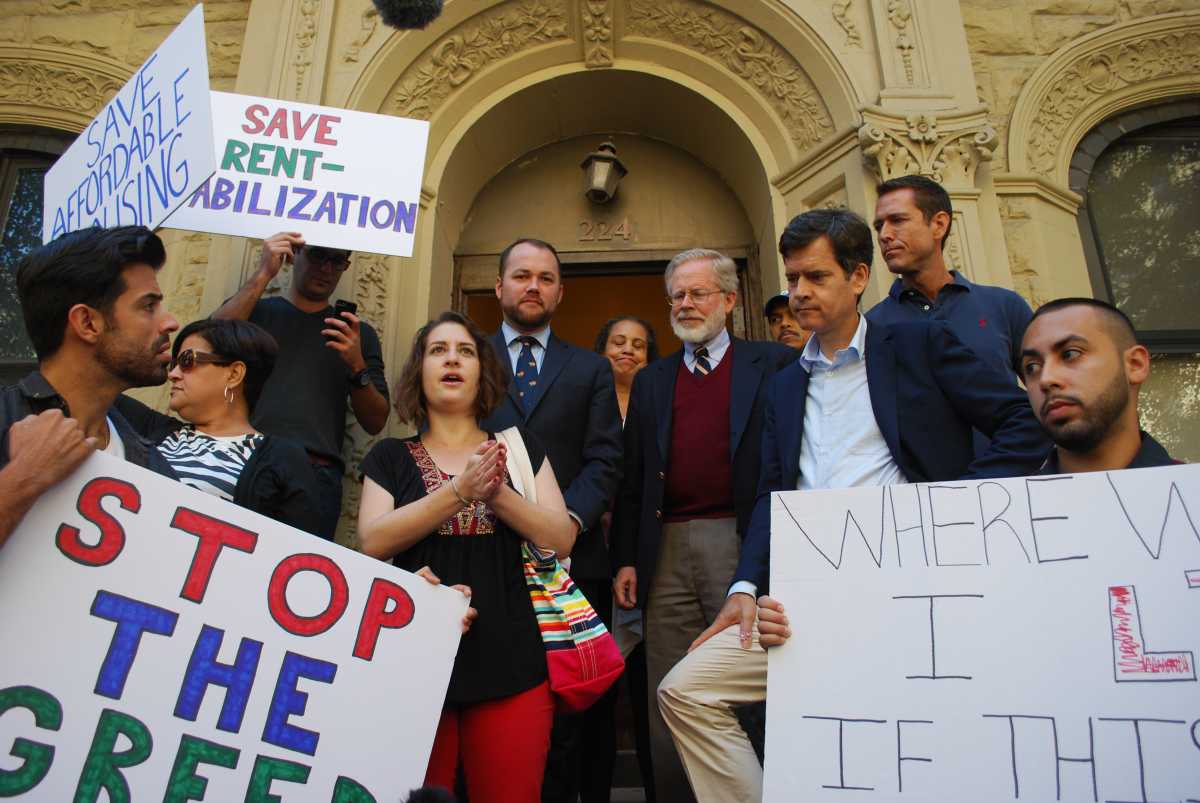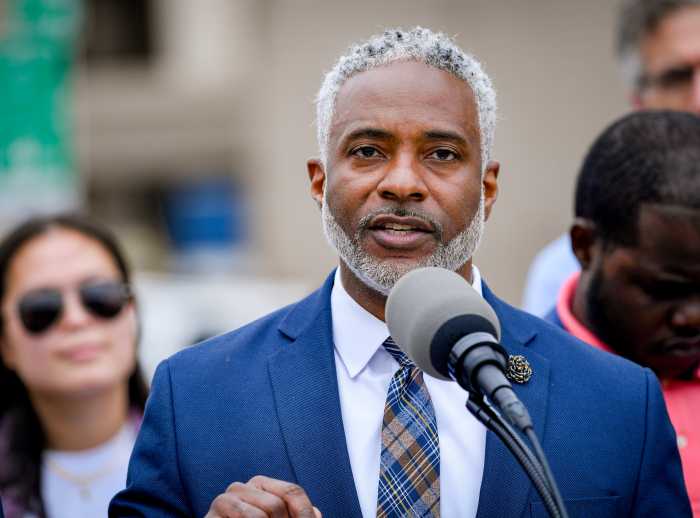BY JIM MARKOWICH | To the New York City real estate tycoons who are lamenting the new rent laws in New York State: It’s really not so bad.
I know, I know. It’s hard to be chipper when you look ahead and you see your return on investment tanking on the whole predatory-equity gamble.
Rent regulation was always an obstacle to windfall profits, but you were making progress — chipping away at it since the 1990s. More and more apartments were pried loose from regulation through the loopholes that gave you legal leverage against it, courtesy of successive state Legislatures that appreciated your money.

In recent years, you were tempted to up the ante, and get rid of rent regulation completely: Buy up those old buildings at way more than market value — what small landlord wouldn’t jump to sell to you? Remove the rent-regulated tenants…or deny their existence — that could be attributed later to a clerical error, if need be. Put in granite countertops and hardwood flooring. Find a handful of young people willing to shell out $5,000 a month to share each fifth-floor walk-up that you would convert to two or more bedrooms.
You knew it would be risky. But your spreadsheets showed great upside potential. (You pride yourself on risk tolerance, anyway.) It helped that some big-name banks were more than willing to repeatedly give you the loans you needed.
All in all, it was such a great plan.
You even got some buildings started, until remaining tenants started making a fuss over all the demolition-related lead dust, calling 311 like it was some big inconvenience to them and their poor, little kids.
And what’s worse — now there are these new rent laws, all in favor of rent-regulated tenants! Who are these new senators and assemblymembers? Are they really willing to listen to tenants, rather than to corporate lobbyists? What’s gotten into Cuomo?
So, yes. It’s tough to acknowledge that these predatory-equity plans turned out to be bad investments after all. You may have to put those plans for a third Mercedes on hold. Maybe you’ll have to settle for a vacation in Europe instead of Tahiti next year.
But what can you do to mitigate the losses? These tenement buildings with two remaining regulated tenants paying you a grand a month are bleeding your cash flow. It’s not going to be easy to find someone willing to take them off your hands, either, like it would have been in 2015. And you’ll be damned if you’re going to invest in gut renovations now. What good are I.A.I.’s (individual apartment improvements) if they don’t raise the rent to the point where apartments get deregulated?
It’s such a mess that you may have to just wake up from the dream — sell and cut your losses. But no developer worth his wine cellar is going to overpay for them like you did when you were caught up in the speculative frenzy. So you’ll have look for some civic do-gooder — some preservation buyer or a community land trust, or sell directly to the tenants for pennies on the dollar. The PR value of a move like that would be substantial. If the state attorney general decides to investigate and punish more predatory-equity practitioners, something like that could weigh in your favor.
Markowich, an East Village resident since 1976, is a member of Tenants Taking Control, a grassroots group started by former tenants of Raphael Toledano that works with the Cooper Square Committee and local politicians to put end predatory equity and re-establish safe, affordable housing in New York City.





































